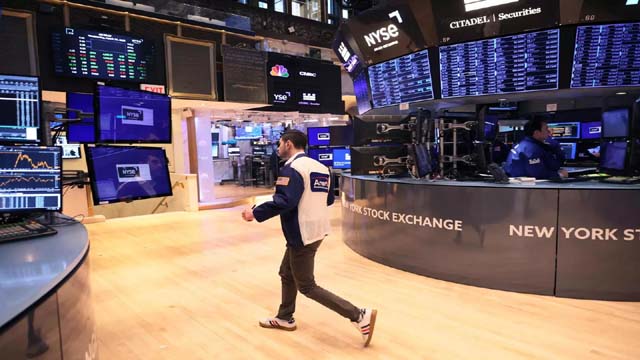
HONG KONG, Nov 8, 2023 (BSS/AFP) - Asian markets fluctuated Wednesday as investors tried to figure out the Federal Reserve's interest rate plans, while demand concerns saw oil prices struggling to recover from the previous day's plunge.
While Wall Street enjoyed another advance, there were few catalysts to drive business, and with geopolitical tensions relatively subdued, US monetary policy is in focus after the central bank last week hinted at no more tightening.
However, officials refuse to commit one way or the other for now, instead saying they want to see more evidence that inflation is on a true downward slope and the labour market has softened enough.
Data on Friday that showed jobs creation was slowing -- but not too much to cause worry about the economy -- instilled confidence the Fed was on course to deliver a soft landing for the economy and avoid a recession.
Chicago Fed boss Austan Goolsbee gave little away Tuesday, saying he was lasering in on getting control of prices.
"We've got to get inflation down -- that's the number-one thing," he told CNBC. "I'm absolutely hammering that's what we should be watching."
He added that it was looking possible to do that without hurting the economy.
"To get inflation down as much as we're getting it down without a big recession, that's basically never happened," he said.
"But because of some of the strangeness of this moment, there is the possibility of the golden path, that we got inflation down without a recession."
All three main indexes in New York enjoyed more gains, with the S&P 500 up for a seventh straight day, having last month tipped into correction territory with a 10 percent drop from recent highs.
But Asian investors were more circumspect, with some markets drifting in and out of positive territory.
Tokyo, Hong Kong, Shanghai, Sydney and Taipei rose, while Singapore, Seoul, Wellington, Manila and Jakarta all dropped.
Still, analysts are upbeat about the outlook for equities.
Solita Marcelli, at UBS Global Wealth Management, said the latest upsurge in stocks "is consistent with our view that investor pessimism had been overdone".
"While we continue to see near-term headwinds for equities, we believe conditions are in place for positive total returns over the next six to 12 months."
Observers said the battle against inflation would be made a lot easier by the continued weakness in oil prices, which were a key driver of the surge last year.
Both main contracts, which have retreated because the Israel-Hamas conflict has not shown signs of spilling into the wider Middle East, sank more than four percent Tuesday after a warning that demand would drop next year.
The US government report said it saw per capita demand hitting a 20-year low.
But National Australia Bank's Tapas Strickland added that there "appears to be better supply for now in the physical market, with several articles noting that Russia's crude shipments are running at a four-month high, China's trade data highlighting uncertain demand prospects, and OPEC+ countries exporting in excess of recent production cuts".
- Key figures around 0230 GMT -
Tokyo - Nikkei 225: UP 0.2 percent at 32,329.39 (break)
Hong Kong - Hang Seng Index: UP 0.3 percent at 17,717.80
Shanghai - Composite: UP 0.2 percent at 3,061.88
Dollar/yen: UP at 150.43 yen from 150.38 yen on Tuesday
Euro/dollar: DOWN at $1.0697 from $1.0701
Pound/dollar: DOWN at $1.2293 from $1.2297
Euro/pound: UP at 87.02 pence from 86.99 pence
West Texas Intermediate: FLAT at $77.34 per barrel
Brent North Sea crude: UP 0.2 percent at $81.77 per barrel
New York - Dow: UP 0.2 percent at 34,152.60 (close)
London - FTSE 100: DOWN 0.1 percent at 7,410.04 (close)